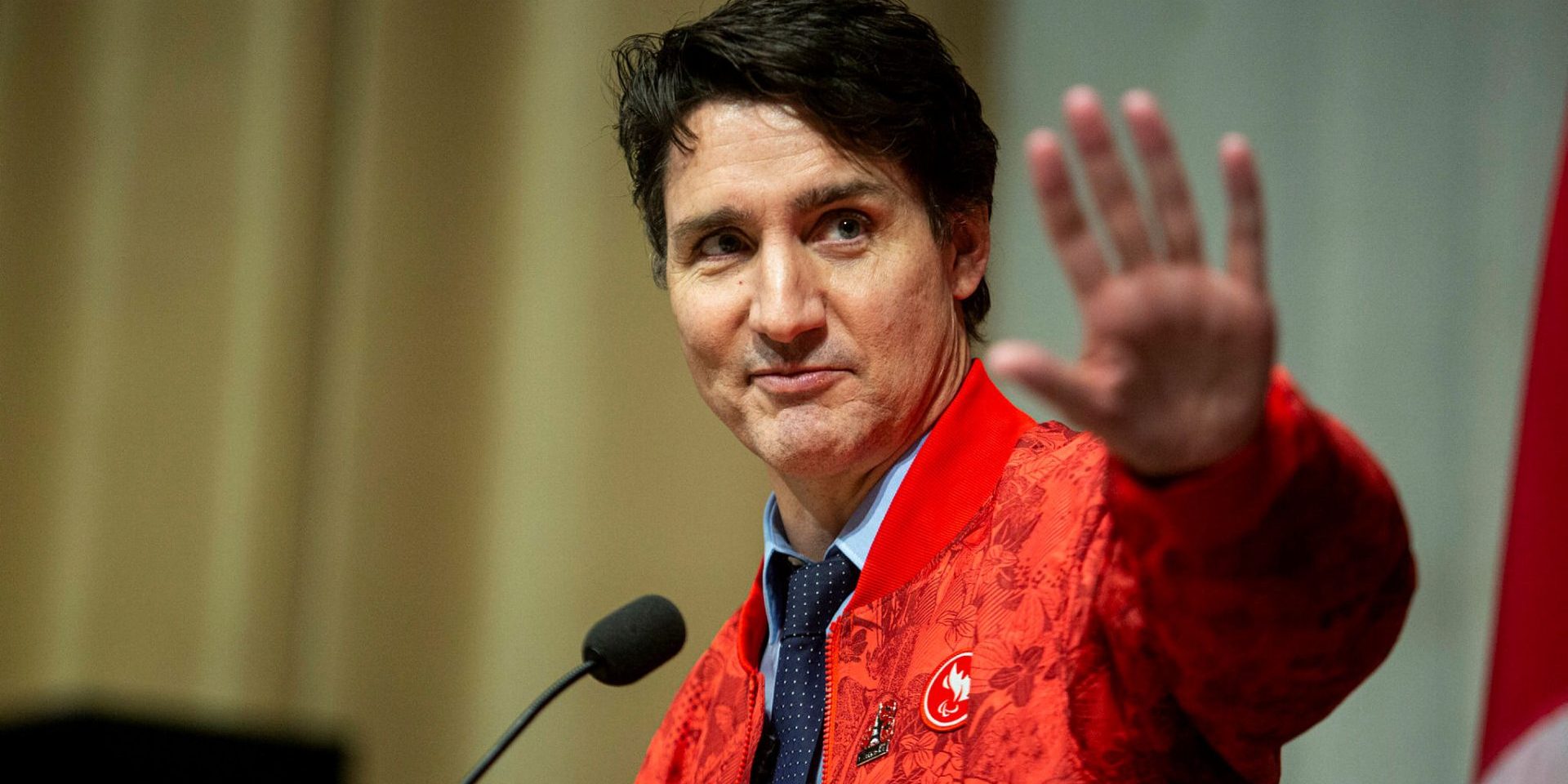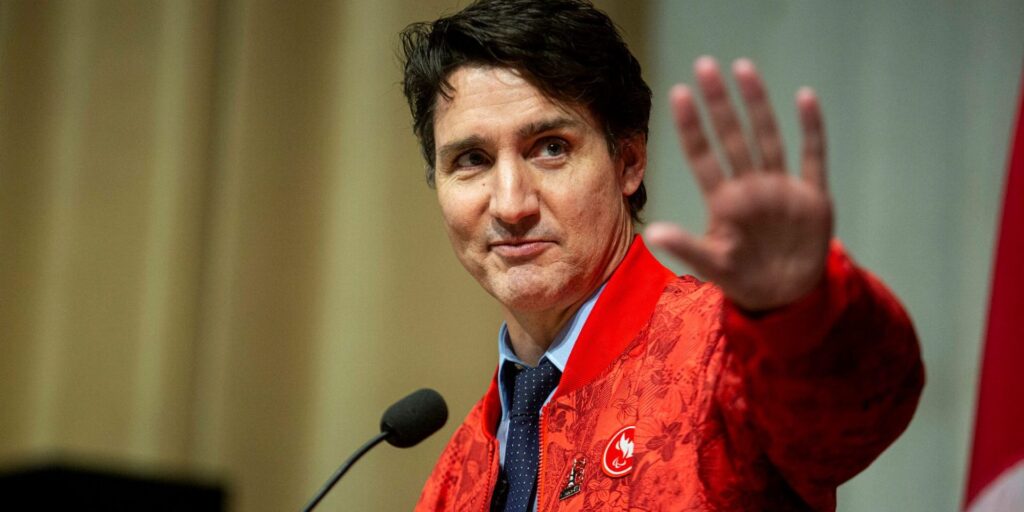Trudeau’s legacy marked by partial reforms, missed opportunities

Published in the Hill Times on January 20, 2025.
Time will tell whether Justin Trudeau’s Senate reforms will change this country’s governance in an enduring way. Hopefully, future leaders will recognize the need to engage Canadians in a meaningful talk about democratic reform.

Prime Minister Justin Trudeau at an event on the Hill celebrating Canadian Olympians’ accomplishments at the 2024 Paris Summer Games on Dec. 4, 2024. Trudeau promised to change this nation’s democratic governance, but his legacy is marked by partial reforms and missed opportunities, writes Lori Turnbull. The Hill Times photograph by Andrew Meade
OTTAWA – Justin Trudeau promised to change democratic governance in Canada, but his legacy is marked by partial reforms and missed opportunities. Back in 2015, when he was campaigning to be prime minister, he said that a Liberal government would do things differently by governing through cabinet rather than an all-powerful prime minister, by ending the tradition of partisan appointments to the Senate, and by replacing the first past the post electoral system with something else – though he didn’t say what. Ten years later, the only governance promise that he kept in earnest was Senate reform – and, on this front, he may have gotten more than he bargained for.
Mr. Trudeau followed through on his commitment to appointing Canada’s first gender equal cabinet. As he said at the time, it was 2015 and gender equity within the apex of power was long past due. However, his declaration that “government by cabinet is back” upon the swearing-in of his first cabinet rings hollow. By multiple accounts, Justin Trudeau’s government has been as prime minister-centric as any other and several of the high profile, impressive, experienced people who Trudeau recruited to help him win the 2015 election ended up leaving cabinet in disappointment with a distant prime minister who did not seek their input. Former ministers Bill Morneau, Jody Wilson-Raybould, and Marc Garneau have all written books criticizing the prime minister’s leadership style, poor communication skills, and failure to engage with cabinet colleagues. Morneau writes about how difficult it was even to get a meeting with Trudeau, recalling that one of the few times that they met one on one was when Morneau resigned. When Chrystia Freeland quit as finance minister and deputy prime minister in December of 2024, she published a resignation letter in which she distanced herself from the prime minister’s approach to managing the economy and was critical of the use of “political gimmicks” at the expense of tough policy decisions. Sharan Kaur, Morneau’s former chief of staff, has written about the Trudeau PMO’s efforts to undermine ministers through leaks to the media and describes the culture in cabinet as one of “toxicity.”
The promise of electoral reform was a flat-out bust. To be fair, not everyone was disappointed that this particular campaign pledge never came to fruition, but it was a central aspect of the Liberals’ democratic reform agenda and the broken promise did not go unnoticed. Trudeau boldly and now infamously claimed that the 2015 election would be the last under the first-past-the-post system but, not even halfway through his government’s first mandate, he abandoned the electoral reform project entirely. Trudeau justified the reversal by saying that there was a lack of “consensus” in the country about the issue of electoral reform and about what system could or should replace the existing one. There was no consensus because the government did not build one. Instead, it ran two parallel and largely disconnected paths of exploration with one lead by a minister and the other led by a parliamentary committee. There was little chance a consensus would emerge from that.
Senate reform has been the most impactful action that the Trudeau government has taken with respect to democratic governance. Instead of continuing with the tradition of partisan appointments to the Senate, the prime minister now takes advice form an Independent Advisory Board on Senate Appointments. Senators are appointed on the basis of merit, professional credentials, and community work. This has made for a more active, autonomous Senate. The upper chamber maintains a sense of deference to the House of Commons as an elected body in the sense that it tends not to overturn legislation coming from the House, but Senators are not shy to amend legislation in substantive ways. This has made the legislative process longer and harder to predict. It would be fair to say that the Senate is no longer a “rubber stamp” as it has been described in the past.
The polls indicate that a change in government is likely in the next election and there is no guarantee that an incoming prime minister would continue with the new approach to Senate appointments. It has no constitutional weight or protection. However, a return to partisan appointments might be seen as a regression in democratic practice. Further, even if a new prime minister were to abandon the new regime, it would take a long time to appoint enough Senators to change the culture of the place as an institution with the authority to engage the legislative process in earnest. Time will tell whether Trudeau’s Senate reform measures will change Canada’s governance in an enduring way. Hopefully, future leaders will recognize the need to engage Canadians in a meaningful conversation about democratic reform.
Lori Turnbull is a Senior Advisor at the Institute on Governance.